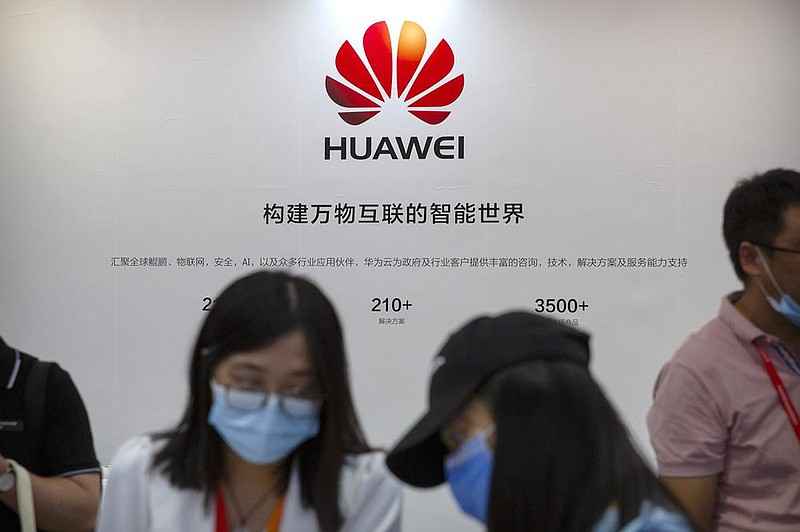HONG KONG -- A Huawei executive says recent U.S. sanctions against the company have caused a shortage of computer chips for the company, hurting the growth of its smartphone business.
Richard Yu, president of Huawei Technologies' consumer business, said at a company conference for developers Thursday that the company has still managed to gain a 51% market share in the Chinese smartphone industry.
The U.S. has imposed various sanctions on Huawei, citing national security concerns. The latest, ordered in August, restrict foreign semiconductor companies from selling chips to Huawei that are produced using American technology.
"Even after this third blow, we still managed to achieve growth," said Yu, who acknowledged that growth had been affected over the past month.
In May, the U.S. barred chipmakers that use U.S. technology and software to design chips from selling to the Shenzhen-based company without a license.
A year earlier, the U.S. government put the company on its trade blacklist, banning Huawei from doing business with U.S. companies after the Trump administration said Huawei was a national security threat.
The U.S. alleges that Huawei could conduct intelligence for the Chinese government and has urged its allies to exclude Huawei from its telecommunications networks. Huawei has vehemently denied the accusations.
This trade blacklist cut Huawei off from suppliers such as Google, which had supplied Huawei smartphones with the Android operating system and Google Mobile Services, such as Gmail and YouTube. Huawei then developed its own Huawei Mobile Services, including an app store, that it has rolled out for newer smartphone models.
Despite the troubles with Washington, in 2019 Huawei shipped more than 240 million phones globally, and was the second-biggest smartphone maker in the world. In the first half of 2020, the company shipped 105 million units and generated revenue of about $63 billion, up 13.1% from the same period a year earlier.
Yu focused on expanding the Huawei Mobile Services ecosystem, which now has 1.8 million developers and 490 million active users. It now supports roughly 96,000 apps and is the third-largest mobile ecosystem after Apple Inc.'s iOS and Google's Android, according to Yu.
Yu said the company plans to make its proprietary operating system HarmonyOS available to devices including its smartphones, some of which still operate on the Android system. Earlier, the company had said HarmonyOS was meant for devices such as smart watches and TVs, among others.
Huawei's pitch to developers revolved around the open, secure and distributed nature of the latest operating system, making it easy to deploy across devices and screen sizes. The first handsets to support it can be expected next year, Yu said. In a world increasingly split along U.S.-China trade lines, Huawei presented HarmonyOS as a potential go-to operating system for its home market.
The deficit of basic chipmaking equipment complicates Beijing's ambitions to reduce its reliance on its geopolitical rival. China has rolled out a number of measures to boost its domestic chip industry, including creating a $29 billion semiconductor investment fund, and Beijing is planning to provide broad support for so-called third-generation semiconductors in its next five-year plan, reported last week.
The manufacturing of these chip sets -- made mainly of materials such as silicon carbide and gallium nitride -- has only limited exposure to U.S. vendors, analysts at Citigroup have said.
Information for this article was contributed by Zen Soo of The Associated Press; and by staff members of Bloomberg News.
